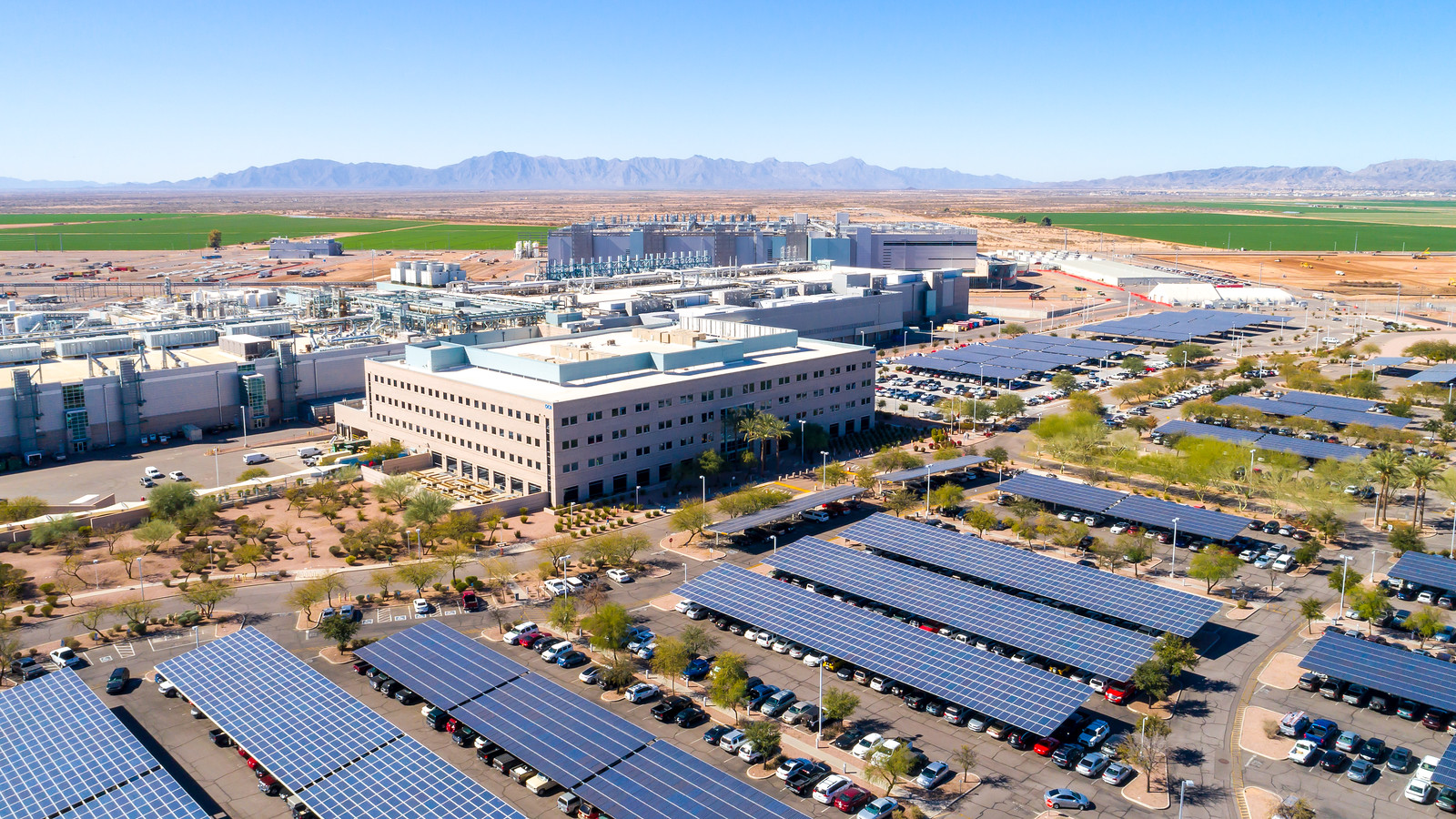Today, the U.S. Department of Commerce announced that Intel will receive a $8.5 billion award from the CHIPS and Science law, led by Arizona Senators Kyrsten Sinema and Mark Kelly. This award – the largest so far from the CHIPS and Science law – supports the construction of Intel’s microchip manufacturing plants in America and Arizona, creating over 9,000 good jobs in Arizona and incentivizing $100 billion in investments from Intel nationwide, restoring our leadership in microchip manufacturing and strengthening national security.
LEARN MORE: Intel and UMC announce new foundry collaboration in Chandler
“I was proud to lead our bipartisan CHIPS and Science Act into law – directly fueling Intel’s historic investment in Arizona and building lasting careers for Arizona families. This investment is proof of how smart, responsible, bipartisan legislation delivers meaningful impact for Arizona as we lead our country to the future,” said Sinema, a chief negotiator of the CHIPS Act.
“This is huge news that will cement Arizona as a global hub for microchips and create a lot of great-paying jobs that don’t require a four-year degree. From Intel and the administration to our state and local economic development leaders and the City of Chandler, everyone worked hard together to get this done. Bringing microchip manufacturing back to America was the goal of my historic CHIPS Act, and today’s announcement is the biggest step we’ve taken towards making that a reality,” said Kelly, a chief negotiator of the CHIPS Act.
Arizona is home to Intel’s largest domestic manufacturing footprint. The company has four microchip plants in the state and is building two new plants in Chandler. Today’s announcement will fuel 3,000 manufacturing jobs and over 6,000 constructions jobs in Arizona as the state becomes a global hub for microchip development, testing, manufacturing, and packaging. In addition to the $8.5 billion award, Intel will also receive up to$11 billion in loans through the CHIPS and Science law.
“This monumental investment in American semiconductor manufacturing is a game-changer for the entire metro Phoenix region. As we fast become the nation’s leader in semiconductor manufacturing and a hub for the industry’s robust supply chain, we are ushering in thousands of high-wage jobs—many of which do not require a four-year degree,” Phoenix Mayor Kate Gallego said. “I am grateful to the President, our Congressional delegation, and our many partners in academia and industry who helped deliver the CHIPS and Science Act that is making announcements like today’s possible. I know Intel’s award marks only the beginning of a new era of prosperity for Phoenix and its neighbors.”
Sinema and Kelly worked for nearly two years to negotiate and champion the CHIPS and Science Act, a $52 billion plan to boost domestic microchip manufacturing. Thanks to their leadership, Arizona is well positioned to become a global hub for microelectronics research, development, testing, manufacturing, and packaging. With new semiconductor plants being constructed in Maricopa County, Arizona workers are already feeling the impact of this historic law.
In June 2020, Sinema first introduced the CHIPS for America Act with Senators John Cornyn (R-Texas) and Mark Warner (D-Va.) to bring semiconductor manufacturing back to the United States. The CHIPS and Science Act included the funding to make Sinema’s CHIPS in America Act operational. Sinema was instrumental in passing the bipartisan CHIPS and Science Act into law, partnering with Republican Senator Todd Young (Ind.) to prevent the legislation from partisan collapse on the Senate floor.
Since the passage of the CHIPS Act, announcements of chips investments in Arizona have surged. Last year, Amkor Technology, Inc., the world’s largest U.S.-headquartered outsourced semiconductor assembly and test service provider, announced a $2 billion investment in a new advanced packaging facility in Peoria.




